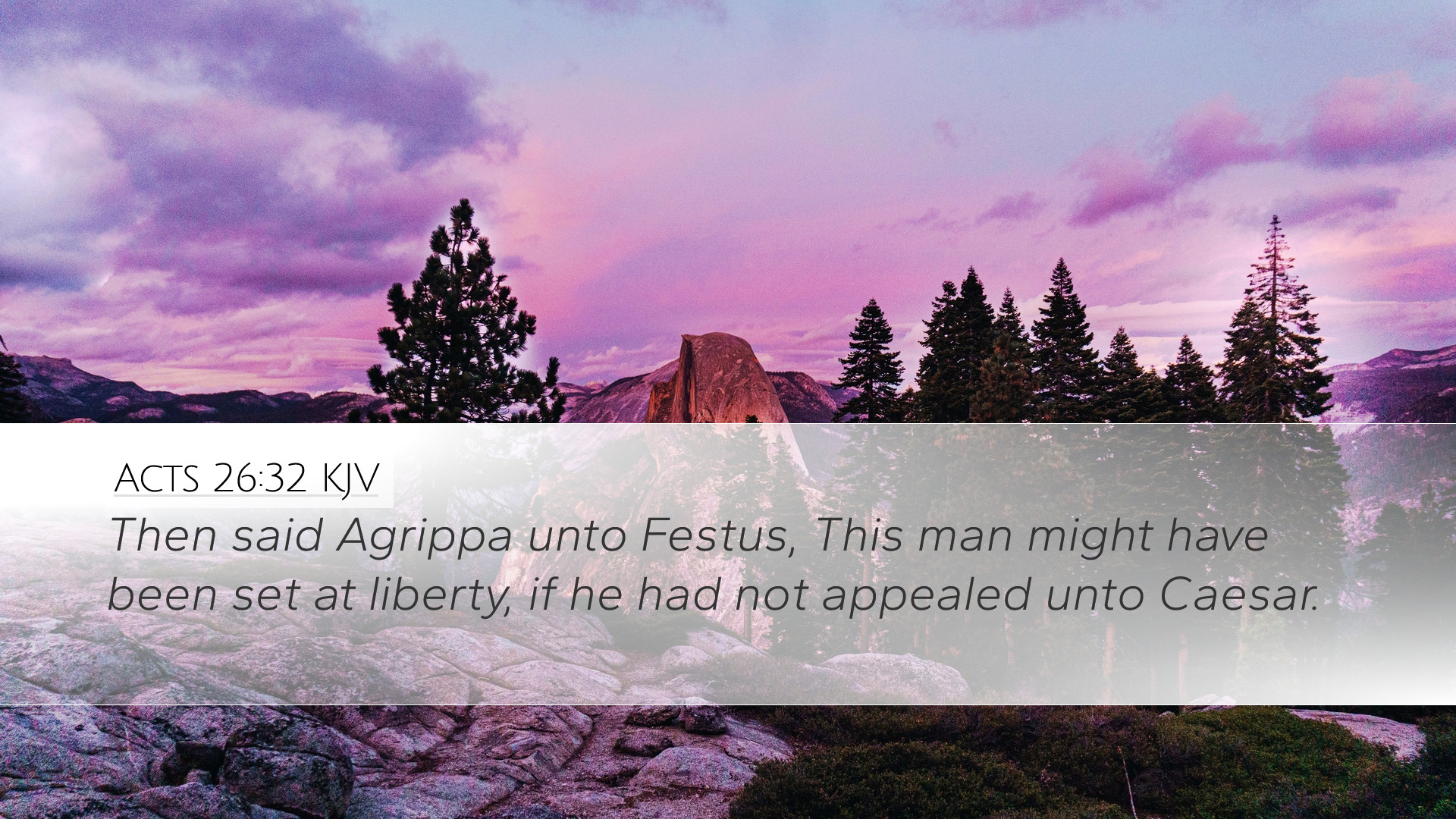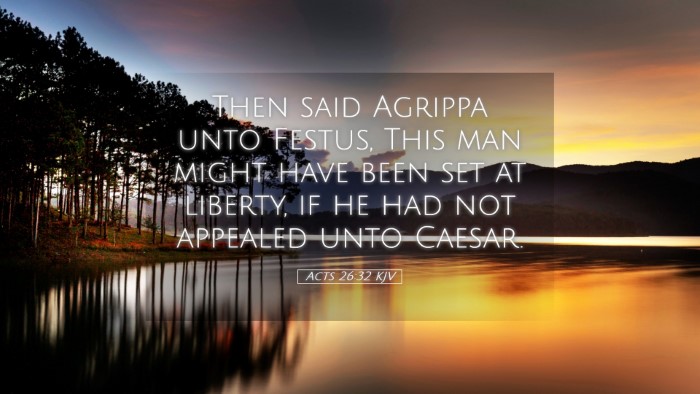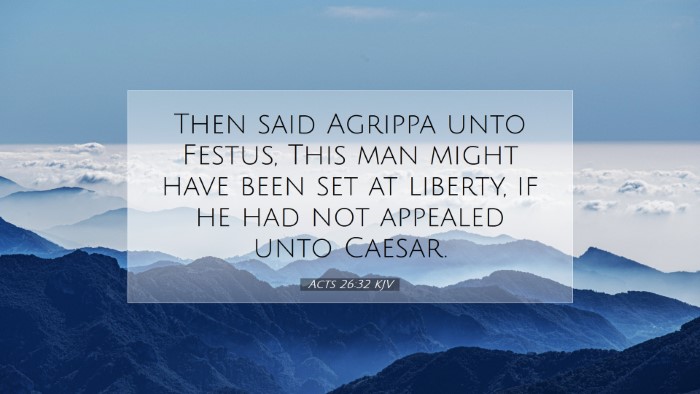Commentary on Acts 26:32
Acts 26:32 states, "And Agrippa said unto Festus, This man might have been set at liberty, if he had not appealed unto Caesar." This verse appears towards the conclusion of Paul's defense before King Agrippa, as recorded in the Book of Acts. The implications of this verse provide rich material for theological reflection, historical analysis, and contemporary application. Below is a summarized commentary from various public domain sources, illuminating the text's significance.
Contextual Overview
The Apostle Paul stands before King Agrippa and Governor Festus, defending himself against charges of blasphemy and sedition. This passage is pivotal as it reflects the political dynamics of the time and Paul's determination to assert his rights as a Roman citizen. Agrippa's conclusion carries profound implications regarding the legal processes of the time and the providential hand of God in Paul's life.
The Role of Agrippa and Festus
Agrippa, as a king with knowledge of Jewish customs and laws, represents a significant authority figure in this narrative. His dialogue with Festus reveals a keen insight into the motivations and potential innocence of Paul.
- Matthew Henry's Commentary: Henry points out how Agrippa's acknowledgment of Paul's situation illustrates a blend of political astuteness and moral ambiguity. Agrippa sees the potential for liberty yet does not pursue it, indicative of a reluctance to challenge Roman authority and the will of the court.
- Albert Barnes Commentary: Barnes emphasizes that Agrippa's statement underscores the unjust impediments that hinder the apostle from enjoying freedom. It nuances the complexity of the judicial processes and how political maneuverings can override justice.
- Adam Clarke's Commentary: Clarke highlights Agrippa's role as a mediator and suggests that Agrippa may have wished to release Paul but felt constrained by legal protocols. This reflects the tension between personal desire and institutional obligation.
Paul’s Appeal to Caesar
Paul's appeal to Caesar is the crux of this verse. His decision to seek the emperor’s judgment shapes the trajectory of his mission and emphasizes his unwavering commitment to the Gospel, even in the face of adversity.
- Theological Implications: Henry notes that Paul's appeal was not merely a legal strategy, but a step towards fulfilling his divine calling, as indicated in previous revelations about bearing witness in Rome (Acts 23:11).
- Influence of Roman Law: Barnes discusses the implications of Roman law and citizenship on Paul's ministry. By appealing to Caesar, Paul not only protects himself but also places the Gospel message within the highest court of the land.
- Providence and Grace: Clarke sees this event as part of God's providential plan. The decision to appeal indicates that even in the face of unjust trials, God uses circumstances to advance His divine purposes.
Lessons for Contemporary Readers
The commentary on this verse provides several takeaways for pastors, students, and scholars today:
- Justice and Advocacy: The narrative encourages believers to engage actively in issues of justice, understanding that sometimes legal systems may serve as platforms for divine testimony.
- Testimony Amidst Trials: Paul's unwavering faith amidst dire circumstances challenges contemporary Christians to bear witness regardless of personal cost. His appeal to Caesar illustrates the importance of using available avenues for justice and advocacy.
- Understanding God’s Plan: The incident reminds believers that God's plans often transcend human comprehension. Our trials may serve higher purposes within the grand narrative of salvation and the advance of the Gospel.
Conclusion
Acts 26:32 captures a pivotal moment in Paul's ministry, reflecting the intersection of justice, personal rights, and divine providence. Agrippa's recognition that Paul could have been liberated had he not appealed to Caesar serves as a reminder of the complexities of faith in a secular world. For scholars and theologians alike, this verse invites deep reflection on the nature of true freedom, the cost of the Gospel, and the profound workings of God's will in both historical and personal contexts.


